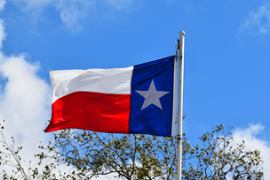Summary
- The Philippines is considering implementing new regulations for its gambling industry.
- Included in these measures are the requirements for gambling companies to be publicly listed and the implementation of higher taxes.
- In recent weeks, numerous conflicting proposals have emerged on the best ways to regulate the industry.
The Philippines is currently experiencing an uncertain gambling reform, marked by vague objectives and a range of conflicting opinions. Earlier this week, President Bongbong Marcos received a proposal aimed at banning all forms of gambling in the country.
Public listings and tax increases are the way forward
Although the President is unlikely to take action on this issue, others have proposed new draft laws that, while more lenient in some respects, remain stringent and could significantly alter gambling regulations in the Southeast Asian country. On Thursday, Philippine Finance Secretary Ralph Recto announced that the government is considering changes to the current regulatory framework, focusing on several key areas. Any proposed changes must consider the substantial presence of offshore operators in the country, as overregulation could inadvertently boost black-market operations. Initially, the government intends to propose a 10% tax increase on online gambling and, notably, require these companies to be publicly listed on the nation's stock exchange. According to Recto, this move aims to enhance transparency by revealing ownership structures and ensuring companies face greater consequences for breaking rules. We can compel them to list, Recto stated firmly in local news reports. Regarding the potential increase in gambling taxes, various approaches could be employed. One option is to entrust this responsibility to the national gambling regulator, PAGCOR, which has the authority to amend the tax code for gambling entities.
Government focused on eking out more money for the state coffers
The government has the authority to implement changes using its legal powers. According to Recto, even a 10% increase should significantly boost the country's revenue, estimated at $350 million based on the current gross gaming revenue from the gambling industry. Currently, the government is exploring various ways to increase the financial benefits generated by the gambling sector and plans to further assess what an appropriate tax increase might be. Meanwhile, PAGCOR and the local advertising watchdog have signed a Memorandum of Understanding this week. This agreement requires any issuer of gambling advertisements in the country to submit their materials for pre-screening before they can be released to the public. Additionally, advertisements have been prohibited on billboards and in public spaces.





























